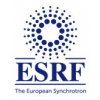Snabbfakta
-
- Grenoble
Ansök senast: 2024-08-25
PhD Thesis Student on ID30B in the Structural Biology group
Context & Job description
Thesis subject: Design and Engineering of Artificial Enzymes for green Energy
The project will combine protein chemistry and structural studies to develop “green” catalysts for protons and CO2 reductions into energy-dense organic chemicals, crucial to store renewable intermittent energies (e.g. solar energy) in chemical energy or products of high added value for chemical industry. This requires the development of cheap, stable, efficient catalysts, based on a better fundamental understanding of complex reaction mechanisms. Natural CO2-reductases (e.g. carbon monoxide dehydrogenases and formate dehydrogenases) are poorly exploited, as they are difficult to produce and O2 sensitive. Artificial enzymes, which consist of a synthetic molecular catalyst (e.g. organometallic complex or an inorganic cluster) anchored into a protein host, are good alternatives without these drawbacks. This PhD project aims at designing and characterizing semi-synthetic artificial reductases towards proton and CO2 transformations, obtained by incorporating of various classes of molecular catalysts (Heme and non-heme) into different well-chosen protein scaffolds. This research project requires multiple competences including biochemistry and mechanistic enzymology developed at the LCBM laboratory (Dr M. Atta) and structural biology (beamline ID30B), high-pressure (HPMX), spectroscopic (icOS) methods developed at the ESRF (Dr C. Mueller-Dieckmann and Dr. P. Carpentier) and crystallogenesis technique at collège de France (Prof. Marc Fontecave). First, we will study and develop proton and CO2 reductases based on myoglobin and heme-oxygenase, since Fe-porphyrins in hemoproteins are potentially efficient catalysts for which we have preliminary results. For both proteins, the Fe-ion of the cofactor will be substituted with Co, Cu, Mn and Zn. The obtained catalysts will be characterized biochemically, spectroscopically and structurally, to be further optimized by mutations. The performance of the catalysts will be assayed using photochemistry and electrochemistry. For these hybrids, we will use the HPMX high-pressure laboratory at ESRF to study the interactions and reactions between catalysts and gases in crystallo and the corresponding structures will be solved at beamline ID30B.
Expected profile
The candidate should have theoretical and practical knowledge in the field of chemistry and biochemistry. He/she should have a passion for research topics at the interface of chemistry, biology and physics dealing with energy and environmental issues. He/she should have skills in biological chemistry methods, and have an interest in catalysis and protein crystallography. Knowledge in photocatalysis will be an asset, but could be acquired during the thesis. The candidate should be a team worker, able to present clearly his (her) results and show initiative. In particular, he/she should be willing to learn new techniques (high-pressure crystallography and in crystallo spectroscopy)
Working conditions
The salary will be calculated on the basis of relevant qualifications and professional experience.
Do you recognize yourself in this description? Apply now for your next professional adventure!
What we offer:













